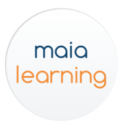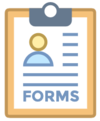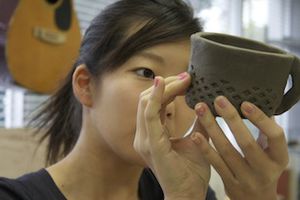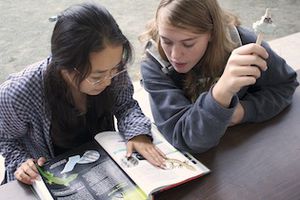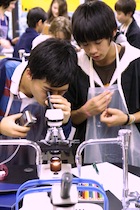School Information
Contents
- 1 Back-to-School Information
- 2 Information for the New Academic Year
- 3 Japanese Version — 日本語版
- 4 Back-to-School Day
- 5 Attendance
- 6 Parents away from home
- 7 Tardies
- 8 Technology Guide, Parent
- 9 Knights Portal
- 10 Student Google Accounts
- 11 Programs Used by Students
- 12 Parent Guide for Computers, Phones, and Electronic Devices
- 13 CAJ Resources
- 14 Additional Resources
- 15 Family Directory
- 16 Visitors on Campus
- 17 Name Tags
- 18 Communicating With CAJ in English
- 19 Communication With Parents
- 20 Information Regarding Required Health Forms
- 21 Health Center
- 22 Student Illness: When to keep a child home from school
- 23 Health Forms
- 24 Taking Medications at School
- 25 Food Allergy Policy
- 26 Health Screenings
- 27 Communicable Disease
- 28 Accident Insurance
- 29 Grading
- 30 Markboard
- 31 Volunteers
- 32 Volunteering
- 33 Expectations for All Volunteers
- 34 Expectations for Field Trip and Event Chaperones
- 35 Volunteer Drivers
- 36 Parents and Other Volunteers
- 37 Parent-Student-Teacher Conferences
- 38 Grievance Policy, Student and Family
- 39 Policies
- 40 Policy Parameters
- 41 Scope of policy (cf: board policy 4.11.2)
- 42 Who may register a complaint or grievance (cf: board policy 4.11.3.1)
- 43 Principles of addressing a complaint or grievance (cf: board policy 4.11.2.1)
- 44 Discovery and Reporting of wrongdoing or violations of board policy (whistle-blowing)
- 45 Protection for whistle-blower (cf: board policy 4.11.4)
- 46 Process of Addressing a Complaint
- 47 Process of Addressing a Grievance or Whistle-Blowing
- 48 Understanding a Christian-Focused, Western-Style Education
- 49 Explores a Christian perspective in all areas and subjects using the Bible and other Christian resources
- 50 Focuses on the student as a whole person
- 51 Emphasizes higher order thinking skills
- 52 Involves the parents as team members in the educational process
- 53 Administers discipline in a fair and consistent manner to modify inappropriate behavior
- 54 Places a realistic emphasis on grades
- 55 Utilizes a variety of assessment tools
- 56 Emphasizes a realistic college selection process
- 57 Utilizes English as its language of instruction and requires the acquisition of a high level of English to be successful
- 58 Emphasizes developing a personal worldview and living consistently using that worldview
- 59 Parent-teacher association
Back-to-School Information[edit]
Information for the New Academic Year[edit]
Dear parents/guardians and CAJ students:
We are preparing for the upcoming school year at CAJ. School for all students begins on Wednesday, August 20. We are looking forward to welcoming each of our students and families back and working together to make 2025-2026 an excellent school year for us all. Our school year on our calendar at a glance can be found on our website.
Newly-enrolled families are requested to attend an important New Family Orientation program on Tuesday, August 19, 10:00-12:00. We will begin our meeting in the Auditorium.
This letter contains a lot of information needed for new and returning families to prepare for next year. Please carefully read the whole newsletter and take note of important dates and things you need to do before school begins.
Dates to know in August[edit]
- August 11: All school forms due
- August 19
- 10:00-12:00: New Family Orientation (please arrive at 9:50)
- 11:00-12:00: New and returning Elementary School families are
welcome to come visit the new classrooms and meet the new principal
- August 20: First day of school
- Elementary School: half day in the morning, 9:30-12:00
- Middle School: half day in the morning, 9:30-12:00
- High School: half day in the afternoon, 13:00-15:30
- August 21 : First full day of school; classes start at 8:30
- September 15: Meet and Greet
- More details to come by the beginning of September
Calendars[edit]
All school calendars are posted on the CAJ website and can be subscribed to or viewed from this page. Please check these calendars regularly as these are essential tools of communication for our community. Class calendars will be updated at the beginning of the school year.
Contact Your Child's Principal With Questions or Concerns[edit]
Most of your questions can be answered by checking our Parent and Student Handbook, but if you have questions or concerns, please contact your child's principal:
- John Van Hofwegen, Elementary School
- Renee Van Druff, Middle School
- Tyrone Fambro, High School
Required Forms[edit]
Please view all forms for your family on the school forms page. It is very important that all required forms are returned by the due date (see above). Forms may include Health Forms, Address Update Form, Student Information Form, Waiver and Indemnity Form, and Parent Responsibility Agreement/Parent Code of Conduct for Child Safety. Other forms include Train/Bus Application, Official Document Request, and the Sports Physical.
To view these forms:
- Go to our website and log in to the Knights Portal.
- Log in to the Portal with either your login ID that ends with @caj.ac.jp, or your own Gmail account.
- If you have forgotten your login ID, please email: registrar@caj.ac.jp
- If you have forgotten your password, please email: techrequest@caj.ac.jp
- Click on the icon that looks like a clipboard.
- Some forms must be completed for each child; other forms must be completed once for the whole family.
Family Directory[edit]
CAJ's Family Directory is password protected. Access to contact information needs to be restricted to CAJ families. Information should not be shared with anyone else.
When you log in for the first time, you will note that you do not have access to the directory because you have not "opted-in" to share your information. Please opt-in to share your family information (and hence have access to other families' information). Please note that changes may take up to two business days to process.
Name Tags[edit]
For security reasons, we ask that all adults on campus wear CAJ name tags during regular school hours. New families will receive a CAJ name tag at New Family Orientation in August. Name tags have the added benefit of being welcoming for new families who have many new names to remember.
Essential Policies[edit]
It is important that all our families are aware of our policies. These policies can be found in our Parent and Student Handbook.
The following policies are especially important for protecting our children and each other:
- Child Protection Policy (English, Japanese)
- Communicable Disease Prevention Policy
- Food Allergy Policy - including a reasonably nut-free campus
As you shop for back-to-school clothes, you may want to review our policy on dress code.
PTA[edit]
Our Parent-Teacher Association (PTA) is an important part of our life together at CAJ. Information about PTA activities and your own involvement can be found on the PTA section of the website.
- A welcome letter from the PTA president will be sent directly to your email account.
- A form for volunteering can be accessed here.
- The PTA hosts prayer meetings.
Japanese Version — 日本語版[edit]
保護者の方々へ、
CAJでは新しい学年度の準備を進めています。新学期は全学年、8月20日、水曜日から始まります。一人ひとりの生徒、そして保護者のみなさまをお迎えできることを心より嬉しく思います。そして皆様と一緒に、2025-2026年度を素晴らしい年にしていけることを、心待ちにしております。学校の年間スケジュールはこちらをご覧ください。
初めてCAJに入学される児童生徒とそのご家族は、8月19日(火)午前10時から午後12時まで大切なオリエンテーションがありますので、、入学する学年にかかわらず全員、必ずご参加ください。オリエンテーションは講堂で行います。
来年度に進学されるご家庭にも、また、初めてCAJで学校生活を始められるご家庭にも、新学年度を迎えるにあたって、お伝えすることが沢山あります。こちらをよく読んで、重要な日付を確認し、学校が始まるまでにしなければいけないことを、再度確認しておいてください。
8月の大切な日付[edit]
- 8月11日: 全てのフォームの提出期限
- 8月19日
- 10:00-12:00 新しいご家族のオリエンテーション
- 11:00-12:00 新入生およびと在校生の小学児童とそのご家族 新しい教室の見学や、新しい校長先生にお会いいただける 機会をご用意しております。ぜひお越しください。
- 8月20日
- 初等部-- 午前 (9:30 - 12:00)
- 中等部-- 午前 (9:30 - 12:00)
- 高等部-- 午後 (13:00 - 15:30)
- 8月21日
- 全日の通常授業開始、午前9時30分
- 9月15日 Meet and Greet(詳細は9月半ばにお知らせいたします)
年間予定表[edit]
全ての学校行事のカレンダーは、CAJウェブサイトに記載されております。このページから閲覧または配信設定ができます。学校からの連絡事項などの大切な情報源となりますので、ぜひご利用ください。なおクラスカレンダーは、学年度初めに更新されます。
ご質問、懸念事項は各校長へご連絡ください[edit]
ほとんどのお問い合わせは、保護者・児童生徒用ハンドブック やウェブサイト上で回答が得られますが、ご質問や懸案事項がございましたら、お子様の属する学部の校長にご連絡ください。
- 小学部: John Van Hofwegen
- 中学部: Renee Van Druff
- 高等部: Tyrone Fambro, High School
必要書類[edit]
ファミリーウェブサイト上のスクールフォームに目を通してください。必要書類全てを記入し、提出期限を厳守して頂きますようお願いいたします。必要なフォームは、Health forms, Address Update, Student Information form, Waiver and Indemnity form (このフォームは生徒1名ずつ記入してください)、Parent Responsibility Agreement/Parent Code of Conduct for Child Safety などです。その他に、定期券購入に必要なTrain/Bus Application、 成績表や在籍証明書などを申請するためのOfficial Document Request、 部活動に参加するためのSports Physicalがあります。
これらの書類は以下の方法でアクセスできます:
- CAJウェブサイトからKnights login をします。(ユーザーネームはCAJからお知らせしたEメールアドレス形式のもの、もしくはご自分のGメールのアカウントアドレスです。パスワードは、初回のログイン時にご自分で作成したものです。)
- ユーザーネームをお忘れの方は、registrar@caj.ac.jp にご連絡ください。
- パスワードをお忘れの方は、techrequest@caj.ac.jp にご連絡ください。
- クリップボードのように見えるアイコンをクリックします。
- お子様一人ひとりのフォーム及びご家庭のフォームに記入し、送信をお願いします。
住所録[edit]
この住所録は、パスワードで保護されています。住所録は、CAJの関係者以外がアクセスすることのないようにしてください。また、個人情報は、誰とも共有しないようにお願い致します。
初回に ログインをした時は、「住所録へアクセスできません」と記載された画面がでてきますが、これは、あなたの情報をCAJの住所録内で公示するための"opted-in"(登録)がされていないためです。ご自分の情報を住所録内で公示するには(また、他のご家族情報にアクセスするために)、"opted-in"を選択してください。情報の変更があった場合には、ウェブサイト上に反映されるまで2日間(土日祝日、学校休校日を除く)かかります。
ネームタグ(名札)[edit]
警備上の理由から、学校時間中、CAJキャンパス内では、全ての大人の方は、ネームタグを必ず身につけてください。新入生のご家族のネームタグは、ニューファミリーオリエンテーションのときにお渡しします。。尚、ネームタグの紐の取り替えについては、アカデミックオフィスへお尋ね下さい。ネームタグは、新しいご家族を歓迎し、お互いの名前を覚えるためにも役に立つツールとなります。
基本的方針[edit]
ご家族全員に、私達の方針を知って頂くことは重要なことです。 保護者・児童生徒用ハンドブックや下記のウェブサイト上でご確認下さい。 以下の3つの方針は、CAJの児童・生徒またはお互いを守るために特に重要なものです。
尚、新学年度用に服を購入される方は、今一度, ハンドブックの中にある ドレスコード(服装規定)をお読み下さい。
PTA[edit]
PTAは、CAJで学校生活を送る上で、とても重要な組織です。PTA活動にどのように参加していけばいいのか、また数多くのすばらしいイベント情報については、 PTAウェブサイトへアクセスしてご覧下さい。
Back-to-School Day[edit]
Back-to-School Day is a PTA function usually held during the second and third weeks of September.
The purpose of Back-to-School Day is to inform parents about classes their children will be attending and the school in general. Parents can:
- Meet teachers and administrators (this is not a time for parent, teacher conferences) .
- Receive syllabi.
- Receive training in computer uses such as checking grades on line or receiving school e-publications.
- Learn about the PTA and ways parents can contribute to CAJ.
HS Index | Previous page: Awards, High School | Next page: Back-to-School Information
Attendance[edit]
Faithful attendance is an important requirement for our life together and one of the keys to academic success. But sometimes a student might not be able to attend school, and at those times we ask that he/she tell us what's happened so we won't worry unnecessarily.
Absence:
- Parents are asked to call the school office between 8:00 a.m. and 8:30 a.m. (9:00 a.m. and 9:30 a.m. on Wednesdays) on the day the student is absent to give notice of the absence and the anticipated duration. An email can be sent to attendance@caj.ac.jp
- If the school is not contacted, a call home will be attempted to make sure the student hasn't had some unexpected difficulty on the way to school.
- Planned absences should be arranged in advance in writing with the school principal and the academic office receptionist at least one week in advance of the absence.
- Students are encouraged to complete assignments ahead of time, if possible, and are expected to complete assignments by the due dates set by the teacher.
- Excessive absences (for high school students) are defined as missing any one class more than 10 times during a semester. Students who are in sports will receive 2 additional days to this per season they participate in.
- Students with excessive absences will receive an F for courses in which such absences have accumulated. Exceptions may be granted by the head of school upon appeal by parents and satisfactory documentation about the reasons for the absence.
- Half-day/whole-day absence (for middle and elementary school):
- Students who miss 5 or more complete periods are considered absent for the entire day, even if they come to school for some portion of the day.
- Students who miss 3-4 complete periods are considered absent for one-half day.
- Truancy: Students who are absent without parental permission are considered truant. Truant students are ineligible to make up tests/quizzes but are eligible to submit assignments, which will be penalized for being late. The principal may take additional disciplinary steps to address truancy.
- Cocurricular participation:
- Students must attend at least 2 blocks in a day in order to participate in co-curricular activities on that day.
- Participation in a scheduled physical education class is required in order to participate in sports after school.
- Students attending multiple day events such as Far East tournaments must follow the homework policy. Exceptions to any of these policies must be approved by the principal.
- If a late evening return from a contest is on a school night, student-athletes are expected to be on time for their first period class the following day with all homework assignments for the day completed.
- Additional sports related attendance policies can be found in the Athletic Hanbook
Tardiness is inconsistent with our desire to respect the time we have together.
- Students are expected to be in their seats and ready to work at the start of each class period.
- Students who arrive late for school must report to the academic office; students will receive a tardy for each period for which they are late.
- Teachers or administrators who are responsible for a student’s tardiness to another class must supply the student with an excused pass.
- HS students with ten tardies accumulated in a semester will serve Saturday School for two hours.
- Saturday School carries with it a cost of ¥1000 per hour which is automatically charged to the family account.
- Saturday School carries with it a cost of ¥1000 per hour which is automatically charged to the family account.
Withdrawing from school is accomplished with the least disruption if parents notify the school several weeks in advance. Our Withdrawal Checklist, available from the academic office, helps us complete the process in an orderly fashion. As a general rule, students may not receive credit for the grading period if they leave school more than two weeks before the end of the period. With enough advance notice, however, arrangements for exceptions can be made through correspondence course work or special tutoring so that students won't miss out on vital school experiences when they need to move before the end of the year. Students who withdraw in good standing will be welcomed back upon submission of re-enrollment forms and required documentation. Students who withdraw because of academic or behavioral problems will be considered for readmission based on submission of re-enrollment forms, necessary documentation, and an interview with the principal and head of school.
HS Index | Previous page: Athletics | Next page: Awards, High School
Parents away from home[edit]
Prior to leaving the country (or even their home for another area within Japan) for a period of time, parents must leave contact numbers and intended length of absence with the Academic Office in case of an emergency.
Tardies[edit]
Teachers will take attendance at the beginning of each class period.
- Students are expected to be ready to study when the teacher begins class or must provide a valid pass in their agenda, or they will be marked tardy.
- Students will receive a warning when they have a total of eight (8) tardies in one semester.
- If a student receives ten (10) tardies in one semester, they will be required to attend Saturday School.
- After they have accumulated the first ten tardies, they will receive the next warning at four (4) tardies and be required to attend a second Saturday school after five (5) tardies.
- Students may bring documentation of exceptional situations (i.e. doctor's appointments, train delays) and the tardy may be recorded as excused. These decisions will be made on an individual basis.
Failure to attend Saturday School may result in additional Saturday School time added on to the original penalty, and possibly suspension for disobedience.
HS Index | Previous page: Sunday Activities | Next page: Technology Guide, Parent
Technology Guide, Parent[edit]
Knights Portal[edit]
The Knights Portal is a password-protected area of the CAJ website that has information pertaining to you as a CAJ parent. From the CAJ public website, click on Knights Login in the heading and enter the log in information that was in the "Information for Parents/Guardians on the CAJ Website” PDF that was sent to you when your child enrolled in CAJ. If you would like to use your personal Google account to log in to Knights Portal rather than the account that has been created for you, please email techrequest@caj.ac.jp and inform us which personal Google account you would like to use.
Within the portal you will have access to important information relating to your child's academics and campus life. See below for an explanation of the icon links found on the page:
LearnerBuild[edit]
LearnerBuild is the online gradebook used in all divisions. Parents log in to the site with the same Google account they use for the Knights Portal. For detailed instructions on how to log in and receive email notifications, click here.
Vidigami[edit]
Vidigami is our secure photo sharing site, allowing CAJ staff to share photos of student activities and events with parents. If you do not have a Vidigami account already set up, you will receive an invitation email to create your parent account at the beginning of the school year. If you need the Vidigami invitation resent to you, please let us know at techrequest@caj.ac.jp.
Maia Learning[edit]
Maia Learning keeps track of student standardized test scores, college choices, college applications information, and a personality and career assessment. It is used by students to research colleges and options after graduation. If you are a parent of a high school student, you will receive your parent login information from the CAJ HS Guidance Counselor.
Directory[edit]
Parents can opt-in to having their contact information (phone number, email, mailing address) shared within the school directory. Please understand that those who do not opt-in will not be able to access other parents' contact info in the directory.
School Forms[edit]
Every year, you will be directed to fill out important school forms such as your emergency contact information and the parent agreement form on this page. Some field trip consent forms (e.g: SWOW) are also posted here.
Other Portal Links[edit]
How to Check Cafeteria Charges
RightNow Media Signup - create your free RightNow Media account and access hundreds of video devotionals Bible studies
Student Google Accounts[edit]
CAJ creates Google accounts for students starting from elementary and e-mail is enabled from 5th grade. For their child's safety, parents are encouraged to know their child's Google password and, as appropriate, routinely check on their child's communications. A student's CAJ Google password can be reset by the CAJ tech team and per the parent's request.
Although parents are encouraged to keep tabs on their child's emails, chats, and account activity, please do not send email from your child's account or use any of the connected Google apps yourself. If you would like to get in contact with other CAJ families, please opt-in to sharing your information in the school directory.
Programs Used by Students[edit]
CAJ students use a variety of web-based programs for school work. Here is an explanation of some of the the main programs that you may hear about or see your child using:
Elementary Programs[edit]
Seesaw[edit]
Elementary students access and submit assignments online through this learning platform. Parents can see and comment on their own child's work. Family login information is sent at the beginning of the school year. If you have been unable to log in to Seesaw, please contact your child's teacher.
Matific[edit]
This math teaching resource gives elementary students practice in grade-appropriate math problems.
IXL[edit]
Students in 4th and 5th grade use IXL for both language arts and math practice. Some students in lower grades also use the site for extra math/grammar help.
Typing Club[edit]
An excellent typing program that students begin using from 3rd grade.
Google Classroom[edit]
In 5th grade, teachers start using Google Classroom to an extent to assign and collect work. Parents are unable to access Google Classroom directly but can opt-in to receive Guardian Summaries every day/week. These emailed summaries show their child's upcoming assignments and late work. If you would like to receive these Guardian Summaries and have not gotten set up yet, please email one of your child's teachers and ask for access.
Middle School Programs[edit]
IXL[edit]
Math and English teachers use IXL extensively in middle school to give students practice in math/grammar concepts.
Typing Club[edit]
6th graders maintain access to their Typing Club accounts and are encouraged to continue using the platform for typing practice. 7th and 8th graders who want to use Typing Club are granted access if they request it.
Google Classroom[edit]
Middle school teachers use Google Classroom to assign and collect work from students. Parents are unable to access Google Classroom directly but can opt-in to receive Guardian Summaries every day/week. These emailed summaries show their child's upcoming assignments and late work. If you would like to receive these Guardian Summaries and have not gotten set up yet, please email one of your child's teachers and ask for access.
High School Programs[edit]
Google Classroom[edit]
High school teachers use Google Classroom to assign and collect work from students. Parents are unable to access Google Classroom directly but can opt-in to receive Guardian Summaries every day/week. These emailed summaries show their child's upcoming assignments and late work. If you would like to receive these Guardian Summaries and have not gotten set up yet, please email one of your child's teachers and ask for access.
Methodize[edit]
Methodize provides custom built courses consisting of lessons, quizzes and tests, providing high school students practice for the SAT.
Parent Guide for Computers, Phones, and Electronic Devices[edit]
The following list is a compilation from various sources and serve as recommendations.
- Have conversations about internet safety as soon as possible. Children can benefit from monitoring and accountability programs, but some teens know how to get around them. Smart phone use and safety should also be carefully considered.
- Ask questions: Who are they communicating with? What websites did they visit? What will you need to use the computer for tonight? (It’s a good idea to review what the child is doing for homework each night anyway, and how much time he/she estimates each assignment or project will take or he/she intends to spend on it. Computer use can be part of the same conversation).
- Establish rules about when, where, how much, and why the computer may be use. A template for creating a contract can be effective for many students, but STICK TO IT! This may need to be revised as a child gets older, and it should be developed together, jointly deciding on rewards and consequences, and kept in an obvious place (near the computer.)
- Keep the computer in a central, monitored place – comment on the positive use of computer as well as “nagging.” Many experts recommend children not be allowed to have a computer in their bedroom or other private areas. Don't forget smart phones and other digital devices are also direct connections to the online world. Experts also advise restricting use when responsible adults are not home.
- A computer is not a “right,” but a privilege. Family rules are appropriate: time limits, purpose, how to behave ethically and responsibly, how to decide who gets to use it when there is conflict.
- Make sure their social media account is set on “private” not “public”
- Make sure they know to never post personal information (phone number, address, Social Security number, etc.) on their profile
- Never share passwords with friends
- Remind students that the computer “remembers” what has been posted and it is trackable. They should use the same language they would use face to face. Deleting an entry seldom means it is gone from the entire Internet.
- Remind students that they can’t assume people online are who they say they are.
- Try to stay educated. You don’t have to be an expert, but you shouldn’t be naïve or get frustrated and give up.
- Be a role model! How are we using our time?
It is appropriate as a parent to monitor and guide a child’s behavior. Spot-checking is healthy and does not have to be an indicator of a lack of trust or seen as a punishment, but rather shows appropriate parental concern for your child's well being.
CAJ Resources[edit]
Please contact us if you would like assistance with a specific problem or finding a resource to assist you with teaching and monitoring your child's appropriate use of technology. Monitoring and accountability solutions are constantly evolving and we are committed to investigating and offering advice about options. Nate Rudd, team leader
See also:
Additional Resources[edit]
Good places to start for information include:
- Technology Guide, Student
- Common Sense Media - Common Sense has a wide range of best practice materials and well researched information available for parents.
- iRules CAJ's library has multiple copies of the iRules text, and they have a template for creating a contract between parents and children to encourage responsible technology use.
Family Directory[edit]
You will need to log in with your username and password to access the Family Directory.
We recommend you "bookmark" this on your browser for easy access. Please be sure to keep this directory updated (as it also affects our school records) and to indicate your preference as to whether or not you want your information published (available to other CAJ families).
Visitors on Campus[edit]
We enjoy having students visit CAJ. Whenever a non-CAJ student would like to visit CAJ classes, all arrangements should be made through the SSS office (Tel. 0424-71-3694; sss@caj.ac.jp) at least one full week in advance.
- All visitors are asked to sign in:
- Students who have made previous arrangements to visit classes are asked to report to the academic office to pick up passes.
- SSS (School Support Services) students who have made previous arrangements to visit classes are asked to report to the SSS office.
- All other visitors (8:00 a.m. - 4:30 p.m.) are asked to sign in at the business office upon arrival.
In order to maintain the integrity of classroom instruction, there are certain days designated for visitors. Generally, we welcome visitors October 1 – December 5 and January 13 – April 30. However, there are circumstances such as field trips, testing, Thrift Shop, and overcrowded classes that are not conducive to hosting guests. The SSS office will advise as to which specific days are available.
- Visits are limited to one school day per year, except in special circumstances.
- We ask for your understanding if we are unable to grant a request.
- When a classroom visit cannot be arranged, visitors are welcome to visit the library, gym lobby, cafeteria, and benches outside. Class and student council activities are reserved for CAJ students only unless specifically stated.
Name Tags[edit]
Parents, staff and visitors are required to wear school issued name tags when on campus during school hours.
Communicating With CAJ in English[edit]
- Parents and guardians are expected to participate in their child's education by being informed and responsible for all CAJ expectations and communications (Board Policy 2.3.1.2.2). Families who wish to attend CAJ must be able to communicate clearly with the school and the teachers in English. For some families this means having a plan in place to translate English messages to and from the school. This is so we can better assist you with your child's education.
- CAJ does translate some information into Japanese (and less commonly into Korean), but most materials are not translated. Some, but not most, events and meetings have translators provided. If neither parent is fluent in English, you will be asked to indicate your communication arrangements during the application process so that we can better help you and your child achieve your goals.
CAJと保護者の英語でのコミュニケーション
- 保護者の方は、CAJの要望とCAJと保護者との間のコミュニケーションを十分に理解し、責任を持つことによって子供たちの教育に参加するべきです。(理事会規定2.3.1.2.2)。CAJにお子様の入学を希望されるご家族は、学校の教職員と明確に英語でコミュニケーションができなければなりません。 学校との連絡は、全て英語で行われますので、必要であれば、各自で英語に訳す手段を準備しておいてください。これによって、学校は、お子様の教育に対して、より良い支援をすることができます。
- CAJからの情報は、日本語(ごくまれに韓国語)に訳されているものもありますが、そのほとんどのものは、英語で伝えられます。いくつかの行事やミーティングでは、通訳者をご用意いたしますが、ほとんどの場合は通訳者はいません。ご両親がどちらも英語ができない場合は、入学手続きの時に、どのように英語でコミュニーケーションをとるかということを学校に伝えて頂きます。これによって、学校は、お子様の目標達成のためによりよい支援をすることができます。
Communication With Parents[edit]
- CAJ desires to have a close working relationship with parents. Having the ability to check your email and our website is necessary for ongoing communication with CAJ. Email and the website are our primary methods of contact for general information, grades, and announcements about disruptions to our program (closures and delayed openings). Closures and delayed openings are also available as messages on our phone answering system. An internet connection and computer access is also necessary for students to complete homework, practice keyboarding, and be in communication with the school and their teachers.
- In addition to report cards, progress reports, and parent-teacher conferences, we have the following avenues for communication: CAJ Website (includes access to Calendars, announcements, handbooks, the password protected family directory, and grades in the MS and HS), a PTA Back-to School Event in September, division specific newsletters (weekly classroom newsletters in elementary division) and a combined annual Chronicle and Alumni News publication. Parents are asked to inform the school of any email changes and make necessary updates in order to receive all important information from the school.
- To keep parents informed of daily classroom work, an assignment notebook (the Agenda) is given to each student in MS and ES. Many teachers give time at the end of classes to record assignments, and students are expected to take their agendas home each night. Each teacher in MS and HS also publishes an iCal with important due dates that parents and students can subscribe to by going to http://www.caj.or.jp/calendars/index.php.
- CAJ encourages teachers to be in regular contact with parents, and asks that parents communicate concerns or questions to teachers in a timely manner. Please phone the school during the school day or send a note or email. Teachers are not called out of class to take telephone calls; a message can be left on our automatic message service.
- CAJ asks that parents make an appointment in order to discuss an important issue with a teacher or principal. Important matters should not be raised in impromptu settings such as school hallways, co-curricular events, or workshop services.
- If a question or concern is not resolved, please contact the principal.
Information Regarding Required Health Forms[edit]
Health Center[edit]
- The health center is staffed by a full-time nurse from 8:00 a.m. (9:00 a.m. on Wednesdays) to 4:00 p.m. to help promote the health and safety of students.
- The nurse administers initial first-aid treatment for illness or injury and is a resource of health information to the community.
Student Illness: When to keep a child home from school[edit]
- If your child develops a fever (temperature over 37.5°), keep him/her home. Your child may return to school after being fever free for 24 hours without the use of any fever-reducing medication.
- If your child tests positive for COVID-19, follow instructions from your doctor regarding how long your child should stay home OR keep your child home for 5 days after the onset of symptoms (day of onset is day 0). Your child may return to school on day 6 as long as he/she has been fever-free for 24 hours and any symptoms (coughing, sneezing, sore throat, etc.) have improved. We ask that your child wear a mask after returning to school until day 10.
- If your child tests positive for influenza, follow instructions from your doctor regarding how long your child should stay home OR keep your child home for 5 days after the onset of symptoms (day of onset is day 0). Your child may return to school on day 6 as long as he or she has been fever free for 48 hours. If your child is coughing, please have him/her wear a mask.
- If your child has multiple episodes of vomiting and/or diarrhea, keep him/her home until symptom-free for at least 12 hours.
Health Forms[edit]
- All new students are required to submit completed Health History, Physical Examination, and Tuberculosis Screening forms before attending classes.
- The Health History form, to be completed by the parents, includes general health information, allergy information and immunization history. Please answer all the questions on the form. You may attach a photocopy of the immunization record in English or Japanese if you wish.
- The Physical Examination form, to be completed by your physician, consists of a general review of body systems and should include a discussion of your child’s immunizations. Please use this opportunity to update any missing or outdated immunizations such as measles, mumps, rubella, chickenpox, and tetanus. These exams should be completed no earlier than six months before the student's first day of school. The physical form must be submitted before the student may attend classes.
- A screening for tuberculosis is required for all new students. Please answer all the questions on the Tuberculosis Screening form and present the form to your physician at the time of the physical examination. If your physician determines that risk factors for TB are present, he will perform the tuberculosis skin test (PPD) or chest x-ray. If your child has no risk factors, as determined by your physician, further testing is not indicated. Please return the Tuberculosis Screening form to school along with the other forms. The Tuberculosis Screening form has been translated into Japanese for your convenience.
- Each family is required to submit a yearly Student Emergency form for each of their children. This form grants the nurse permission to administer care and selected medications, provides updated medical information, and an alternate contact person for emergency situations when the parent cannot be reached.
- If it becomes necessary to send a student home during the school day, the nurse will contact the parent or the alternate contact person to make necessary arrangements.
Location[edit]
Please look for the Health History, Physical Examination/Sports Physicals, and Tuberculosis Screening in School Forms.
Taking Medications at School[edit]
The school nurse can assist the students in taking prescription medication during the school day if:
- The parents fill out the Permission to Administer Prescription Medication form (in School Forms).
- The medications are in the original packaging.
Food Allergy Policy[edit]
For more information, please read the Food Allergy Policy.
Health Screenings[edit]
- CAJ's health coordinator (school nurse) conducts annual health screenings on all students.
- The screenings typically take place during October, November, and December, beginning with elementary students.
- Screenings for height, weight, and vision are conducted for all students. *Hearing screening is included for elementary students (grades K, 1, 3, and 5).
- Parents receive yearly screening results via email.
Communicable Disease[edit]
For more information, please read the Communicable Disease Prevention Policy.
Accident Insurance[edit]
- CAJ offers a worldwide accident insurance plan to supplement health insurance policies. CAJ pays the fees directly (families are not billed separately) so that all students are covered by accident insurance.
- Coverage pays whether the accident happens in Japan or not and whether school is in session or not.
- All families should have primary health and accident insurance in place, as required by Japanese law. Any expenses that are not covered by our accident policy are the responsibility of the family and the family's primary insurance vendor.
- Parents or students who witness an accident are encouraged to report the incident to a CAJ staff person as soon as possible.
Grading[edit]
The CAJ secondary uses the following standardized scale:[edit]
| Grade | Rubric | Percent | Descriptor |
| A | 4.5-5.0 | 95-100 | Exemplary |
| A- | 4.0-4.4 | 90-94 | Exceeds Standard |
| B+ | 3.6-3.9 | 86-89 | |
| B | 3.3-3.5 | 83-85 | Exceeds in some areas |
| B- | 3.0-3.2 | 80-82 | Meets standard in all areas* |
| C+ | 2.8-2.9 | 76-79 | |
| C | 2.6-2.7 | 73-75 | |
| C- | 2.4-2.5 | 70-72 | Meeting in half or more areas |
| D+ | 2.2-2.3 | 66-69 | |
| D | 2.0-2.1 | 63-65 | Beyond beginning in all areas |
| D- | 1.8-1.9 | 60-62 | Beyond beginning in most areas |
| F | 0-1.7 | 59 and below | Not really far enough along |
The CAJ secondary uses the following rubric - percentage conversion:[edit]
| 5.0 | 100 | 4.0 | 90 | 3.0 | 80 | 2.0 | 63.5 | 1.0 | 52 |
| 4.9 | 99 | 3.9 | 89 | 2.9 | 79 | 1.9 | 61 | ||
| 4.8 | 98 | 3.8 | 88 | 2.8 | 77.5 | 1.8 | 60 | ||
| 4.7 | 97 | 3.7 | 87 | 2.7 | 75 | 1.7 | 59 | ||
| 4.6 | 96 | 3.6 | 86 | 2.6 | 73.5 | 1.6 | 58 | ||
| 4.5 | 95 | 3.5 | 85 | 2.5 | 71 | 1.5 | 57 | ||
| 4.4 | 94 | 3.4 | 84 | 2.4 | 70 | 1.4 | 56 | ||
| 4.3 | 93 | 3.3 | 83 | 2.3 | 69 | 1.3 | 55 | ||
| 4.2 | 92 | 3.2 | 82 | 2.2 | 68 | 1.2 | 54 | ||
| 4.1 | 91 | 3.1 | 81 | 2.1 | 67 | 1.1 | 52 |
- Grade point average is a system that denotes the quality of grades a student has earned in high school.
- Grade point averages are included on transcripts and are considered by colleges as part of admissions considerations.
- Both weighted and unweighted GPA's are calculated.
- Advanced Placement (AP) courses are placed on an increased (weighted) scale.
- CAJ student awards are based on weighted GPA
High school grade point averages are calculated in the following way:[edit]
| Grade | All non-AP courses | AP Courses |
| A | 4.0 | 4.5 |
| A- | 3.7 | 4.2 |
| B+ | 3.3 | 3.8 |
| B | 3.0 | 3.5 |
| B- | 2.7 | 3.2 |
| C+ | 2.3 | 2.8 |
| C | 2.0 | 2.5 |
| C- | 1.7 | 2.2 |
| D+ | 1.3 | 1.3 |
| D | 1.0 | 1.0 |
| D- | 0.7 | 0.7 |
| F | 0.0 | 0.0 |
| P | no impact on GPA | no impact on GPA |
HS Index | Previous page: Grade updates | Next page: Graduation requirements
Markboard[edit]
CAJ uses the system known as Markboard to enter and display grades. Marboard is run through a company named "Chalk.com". The grades entered on Markboard are posted by the teachers and are available to be seen the teacher, students, parents and other staff members. The system is authenticated through Google and accessed through our website or through Chalk.com's website.
Volunteers[edit]
Volunteering[edit]
- Our community has a tradition of volunteering, and we are grateful for volunteers who help us equip students to serve Japan and the world for Christ.
- Extended school community members can help make a difference in many areas, including:
- Classroom assistance
- Driving students to school events
- Field trip supervision
- Library
- Sports
- Fine arts
Expectations for All Volunteers[edit]
- It is essential that volunteers:
- Comply with all directions from CAJ personnel.
- Model Christ-like behavior at all times (behavior, attitude, vocabulary).
- Dress appropriately for the occasion.
- Wear a nametag at all times while on campus.
- Support CAJ student handbook expectations regarding behavior.
- Seek to be “above reproach” while interacting with students.
- Avoid contact with students outside of the approved volunteer role (except as overlaps with role as parent or other role recognized by the school.
- Avoid being alone (one on one) with any student other than their own child.
- Keep CAJ personnel informed of questions and concerns regarding interactions with students.
- Comply with CAJ’s Child Protection Policy and Universal Precautions Policy.
Expectations for Field Trip and Event Chaperones[edit]
- When volunteers are used as chaperones it is essential that they also:
- Are continually monitoring student behaviors
- Are attending to the safety of the students and group at all times
- Stay with the group (inform the staff if they leave for any reason, even momentarily)
- Keep the staff person in charge informed of any concerns
- Follow the directions of the staff member in charge
- It is also important that they avoid:
- Focusing too much attention on their own child rather than the group
- The distraction of extended conversations with other adults
- The distraction of phone calls, checking messages, email, social networking sites, etc.
- Doing anything to undermine the authority of the staff person in charge (changing or challenging instructions, disobeying rules, etc.)
Volunteer Drivers[edit]
- In addition to the other requirements for volunteers, volunteer drivers also must:
- Provide proof of drivers license before transporting CAJ students or driving a CAJ vehicle (a copy must be submitted to the academic office)
- Provide proof of motor vehicle insurance before transporting CAJ students in your personal vehicle (a copy must be submitted to the academic office)
- Ensure students use seatbelts when transporting CAJ students
- Comply with all Japanese driving laws
Parents and Other Volunteers[edit]
- CAJ parents are automatically approved as volunteers.
- Parent volunteers for ongoing interactions with students, such as assisting with coaches or teaching in classrooms, must be approved by the head of school and divisional principal for each season or extended activity in which they are involved.
- Volunteers who do not have children enrolled at CAJ should apply online at http://www.caj.or.jp/employment/application.php
- Approved non-parent volunteers do not need to automatically fill out an application each time they seek to volunteer, but they must be approved by the head of school and divisional principal for each season or activity beyond that for which they were originally approved.
Parent-Student-Teacher Conferences[edit]
Parent-student-teacher conferences are scheduled in November. In order to encourage students to be informed and responsible for their own learning, students are strongly encouraged to attend these confernces with their parents. At other times, conferences are scheduled at the request of parents, teachers, or administrators. Other opportunities for parents to learn more about their child's education are during Back-to-School Day in September and during Student-led conferences in February.
HS Index | Previous page: Name Tags | Next page: Parent-teacher association
Grievance Policy, Student and Family[edit]
Grievance Report Form
Whistle-blowing Report Form
日本語訳
Policies[edit]
This administrative policy fulfils three board policies:
- B.4.11.3.2: The head of school shall not fail to have a written administrative policy outlining the process by which grievances are to be addressed.
- B.4.11.4.3: The head of school shall not fail to have a written administrative policy outlining the process by which whistle-blowing incidents are to be addressed.
- B.2.3.8: … the head of school shall not fail to provide a biblical grievance process and inform students/families of this policy.
This policy provides the first four steps of the complaint, grievance/whistle-blowing process up to and including resolution at the head of school level. If resolution is not reached at the head of school level, a grievance/whistle-blowing appeal may be taken to the board in accordance with board policies 4.11.3.3 and 4.11.4.4.
Policy Parameters[edit]
Definitions of complaint, grievance, and whistle-blowing (cf: board policy 4.11.1)
- Complaint: discontent or disagreement with conduct or decisions and/or administrative policies, procedures, management style, etc.
- Grievance: protest against board policy being violated to one's detriment, or the application of board policy in an unjust or unfair manner.
- Whistle-blowing: exposing wrongdoing within an organization, whether unethical or immoral, or violations of board policy.
Scope of policy (cf: board policy 4.11.2)[edit]
This policy is intended to address the handling of complaints, grievances and whistle-blowing as defined above. Complaints are to be dealt with at the administrative level, going no higher than the head of school. The administration and staff are expected to respond courteously to complaints, but it will be up to the administration’s judgment as to whether the complaint should be acted upon.
Who may register a complaint or grievance (cf: board policy 4.11.3.1)[edit]
A person (or couple) with a grievance must represent himself/herself, but may ask one other person to accompany him/her even at the first step of the process. No one may seek redress for a grievance on behalf of another person.
Principles of addressing a complaint or grievance (cf: board policy 4.11.2.1)[edit]
The process of addressing a complaint or grievance is based on several principles:
- Speaking up when one believes one has been wronged, rather than harboring resentment (Matthew 18:15)
- Attempting to contain the matter to as limited a number of persons as possible during the attempt to resolve the problem (Matthew 18:15-17)
- Being sensitive to the feelings of others and noticing when others seem to have been hurt by one's actions (Matthew 5:23-24)
- Settling matters quickly (Matthew 5:25)
- Speaking truthfully, but in a loving manner (Ephesians 4:15)
- Common courtesy (Romans 12:10)
- Allowing reasonable time for resolution before proceeding to the next step
- Documenting grievances and attempts at resolving the grievance
- Abiding by the disputed policy or decision until the matter is resolved
- Not persisting in a grievance once the full appeal process has been finalized
- While uniformity is not required, and diversity of opinion is encouraged, unity is to be preserved, and dissension avoided (Ephesians 4:3, 11-13)
- All parties have the right to legal counsel and have the right to call witnesses.
Discovery and Reporting of wrongdoing or violations of board policy (whistle-blowing)[edit]
- All CAJ students and parents are asked to report suspected wrongdoing at CAJ, whether unethical, immoral, or violations of board policy, to division leaders or the head of school.
- A reporter is asked to: Make a report whenever s/he has knowledge or reasonable suspicion of or observes a CAJ staff member acting unethically, immorally, or in violation of board policy by:
- Making a verbal report as soon as is practically possible, ideally within 24 hours and
- Preparing and submitting a signed, written report thereof, ideally within 36 hours of receiving the information concerning the incident. (Forms are available on CAJ’s Web site).
- “Reasonable suspicion” means that it is objectively reasonable for a person to entertain a suspicion, based upon facts that could cause a reasonable person in a like position, drawing, when appropriate, on his or her training and experience, to suspect unethical, immoral, or board policy-violating action.
- The reporting duties under this section are individual, and no supervisor or administrator may impede or inhibit the reporting duties, and no person making a report shall be subject to any sanction by CAJ for making a reasonable report.
Protection for whistle-blower (cf: board policy 4.11.4)[edit]
- A whistle-blower who believes he/she has knowledge of wrongdoing at CAJ may speak to the authority over the alleged wrongdoer without going first to the wrongdoer, if he/she is quite sure that confirmation will be hindered by alerting the wrongdoer first (cf: board policy 4.11.4.1).
- A whistleblower who has acted in good faith and has demonstrated a lack of malice in reporting what could turn out to be unfounded, will not face consequences for calling attention to what he/she believes is wrongdoing in the school (cf: board policy 4.11.4.2).
Process of Addressing a Complaint[edit]
Step 1 (Private Approach)
- A person who has a complaint is to first privately approach the person or people whom the complaint is against and communicate the complaint verbally, giving opportunity for positive dialogue. If the person who has grieved the other responds positively to the airing of the complaint, the person with the complaint is to allow an agreed-upon period of time to ensure that the complaint is resolved.
- If the agreed-upon time passes without steps being taken toward resolution or if the person who is approached responds inappropriately and does not agree to resolve the issue, it may be necessary to proceed to step 2.
Step 2 (With Others)
- If resolution is not reached, the person with the complaint, along with one or more witnesses, should set a mutually convenient time with the person or people whom the complaint is against. During this meeting, a written statement of the complaint should be presented to the person or people whom the complaint is against, again giving opportunity for positive dialogue. A dated, signed copy of the statement should be kept. Before proceeding to the next step, the party (parties) with the complaint must allow an agreed-upon period of time to pass so that resolution may be reached.
- If the agreed-upon time passes without steps being taken toward resolution or if the person who is approached refuses to meet or responds inappropriately and does not agree to resolve the issue, it may be necessary to proceed to step 3.
Step 3 (Supervisor)
- If resolution is still not reached, the person with the complaint and the witnesses should approach the supervisor of the person or people whom the complaint is against and share the complaint. A copy of the written statement is to be given to the supervisor, who will research the complaint, talk with all primary parties, and act upon the complaint in a timely manner. The supervisor will document his/her decision and will report it to all parties involved.
- If the agreed-upon time passes without steps being taken toward resolution or if the supervisor refuses to meet, responds inappropriately, or does not agree to resolve the issue, it may be necessary to proceed to step 4.
Step 4 (Head of School)
- If resolution is not reached at the supervisor level, the complaint may be taken to the head of school. A copy of the written statement and the supervisor's documentation is to be given to the head of school. The head of school will communicate with the supervisor, act upon the grievance, document his/her decision, and report his/her decision to all parties involved.
- Though it is unlikely that the head of school will be able to discuss with the reporter the details of the solution or of the supervisory actions taken with the divisional supervisor, the head of school will notify the reporter when the issue has been dealt with.
- If the complaint is not resolved in a manner satisfactory to the complainant, while unfortunate, the complainant is requested to accept the decision of the head of school and cease the complaint. According to board policy 4.11.2, complaints are to be dealt with at the administrative level, going no higher than the head of school. The administration and staff are expected to respond courteously to complaints, but it will be up to the administration’s judgment as to whether the complaint should be acted upon.
- However, if the agreed-upon time passes without steps being taken toward resolution or if the head of school refuses to meet, responds inappropriately, or does not agree to resolve the issue without explaining that in her/his opinion the issue is a complaint which has been dealt with and therefore should not go further than the administration, it will be necessary to proceed to step 5, grievance appeal to the school board (cf: board policy 4.11.3.3) .
Step 5 (Board) (board policy 4.11.3.3 and 4.11.4.4)
- If resolution is not reached at the head of school level, a grievance/whistle-blowing appeal must be taken to the school board.
- A copy of the grievance and documentation should be presented to the board chair.
- The board executive committee will determine if it is appropriate for the grievance appeal to be heard by the board. If it is, the board will act upon the grievance and record the proceedings.
- All decisions of the board are final. Those who persist in a grievance, by either word or deed, after final action of the board, will be subject to discipline, up to the point of being asked to leave the school.
Process of Addressing a Grievance or Whistle-Blowing[edit]
Reporting information regarding a suspected case of unethical, immoral, or board policy-violating action or a perceived unfair or unjust application of policy to another board-contracted staff member, co-worker, or person other than division supervisors or the head of school shall not be a substitute for making a report to a division supervisor or the head of school.
Step 1 (Supervisor)
- The person with the grievance / whistle-blower should approach the division supervisor of the person who is suspected of committing an unethical, immoral, or board policy-violating action or a perceived unfair or unjust application of policy with a written statement on a report form. (Forms are available on CAJ’s Web site under Documents). If the division supervisor is implicated, the reporter should approach the head of school directly. If the head of school is implicated, the reporter should start with a division supervisor (a principal, the business manager, or the director of SSS).
- The aggrieved/whistle-blower should keep a copy of the dated and signed report.
- The supervisor will ask for clarification if necessary, set a reasonable deadline in which the issue will be dealt with and communicate this deadline to the reporter, will research the report according to a plan worked out with the head of school, and will act upon the report in a timely manner. The supervisor will document the actions taken and the decision reached.
- Though it is unlikely that the supervisor will be able to discuss with the reporter the details of the resolution or solution, the supervisor will notify the reporter when the issue has been dealt with.
- If the agreed-upon time passes without steps being taken toward resolution or if the supervisor refuses to meet, responds inappropriately, or does not agree to resolve the issue, it will be necessary for the reporter to communicate directly with the head of school.
Step 2 (Head of School)
- The reporter must give a copy of the written grievance/whistle-blowing report to the head of school.
- The head of school will set a reasonable deadline in which the issue will be dealt with and communicate this deadline to the reporter, communicate with the supervisor and take necessary corrective action, and act upon the unethical, immoral, or board policy-violating action.
- Though it is unlikely that the head of school will be able to discuss the details of the resolution or solution with the reporter, the head of school will notify the reporter when the issue has been dealt with.
- If the agreed-upon time passes without steps being taken toward resolution or if the head of school refuses to meet, responds inappropriately, or does not agree to resolve the issue, it will be necessary to proceed to next step, taking the grievance/whistle-blowing report to the school board (cf: board policy 4.11.4.4).
Step 3 (Board) (Board policy 4.11.3.3 and 4.11.4.4)
- If resolution is not reached at the head of school level, a grievance/whistle-blowing appeal must be taken to the school board.
- A copy of the grievance and documentation should be presented to the board chair.
- The board executive committee will determine if it is appropriate for the grievance appeal to be heard by the board. If it is, the board will act upon the grievance and record the proceedings.
- All decisions of the board are final. Those who persist in a grievance, by either word or deed, after final action of the board, will be subject to discipline, up to the point of being asked to leave the school.
Grievance Report Form
Whistle-blowing Report Form
Board Policy: B.2.3.8
Understanding a Christian-Focused, Western-Style Education[edit]
(日本語訳:Understanding a Christian-Focused, Western-Style Education, Japanese)
The purpose of this article is to help you understand more about a Christian-focused, western-style education as you consider enrolling your child at Christian Academy in Japan (CAJ). CAJ uses an American curriculum delivered in English. Although this brochure is not exhaustive, it does provide you with an explanation of some of the most important concepts of CAJ’s program and how it might differ from other schools. Please share this information with your child; it will give him or her a better understanding of the adventure ahead.
The following are ten important concepts of the model of Christian-focused, Western-style education that CAJ uses with some practical suggestions for parents to help your child be successful.
CAJ’s Christian-focused, Western-style education...
Explores a Christian perspective in all areas and subjects using the Bible and other Christian resources[edit]
CAJ’s educational philosophy is based on the belief that everything in our lives and every square centimeter of creation belongs to God. Students are challenged and taught to see the world through the lens of the Bible. Christian teachers don’t avoid teaching about the world, but they help students see it just the way it is: created perfect by God, damaged by sin, and redeemed by Christ. The Bible is also used to learn skills for restoring every aspect of a fallen world—whether at school, work, play, or in worship. Students, whether Christian or not, are taught to use the Bible as a powerful tool to work towards a better world. This instruction extends to co-curricular and outside-of-class activities.
- Suggestions for Parents
- a. Encourage your child to read the Bible and spend time with him or her studying the Bible’s stories and principles.
- b. Help your child learn more about Christian lifestyles through Christian movies, music, literature and culture.
- c. Discuss both Christian and non-Christian things with your child, encouraging him or her to think deeply about the meaning of what happens in the world around us.
- d. Encourage participation in church and Sunday school as well as Christian youth groups, camps, and activities.
Focuses on the student as a whole person[edit]
Because CAJ prepares students to have the option of attending college, academics are very important. However, CAJ remains dedicated to educating the whole person, spiritually, academically, socially, emotionally and physically. A western-style school tries to strike a balance where no one aspect of the student’s education is emphasized over another. A Christian school looks for every child’s individual talents and teaches students to honor and use the gifts God has given them. We challenge our students to strive for the highest potential within their gifts, to develop strong character and leadership qualities, to learn to live in a global community, to serve others, and to accept responsibility.
- Suggestions for Parents
- Encourage your child to get involved in co-curricular activities such as athletics, drama, student government and music.
- Support your child’s involvement in co-curricular activities by attending his or her performances and competitions.
- Help your child discover his or her unique and special gifts and talents.
Emphasizes higher order thinking skills[edit]
Although some memorization and rote memory of content will always be required in a course of study, the integration, analyzing and application of information and ideas will be emphasized in a western educational system. It is important that a student has the ability to recall certain facts and knowledge; however his or her ability to think critically is considered more important. The emphasis is on utilizing these facts to problem-solve and to apply information to real-life situations. In western education, the emphasis is not on how much you know, but on knowing where to find information, being able to discern its validity and usefulness, and applying knowledge to solve a problem. A Christian education also challenges students to seek consistency between their beliefs and actions.
- Suggestions for Parents
- Start when your child is young to encourage him or her to think through problems he or she encounters at home or with schoolwork. Don’t always give your child the answers or simple solutions, but permit him or her to ponder, puzzle and struggle with problems. Help your child to reach solutions by giving hints but don’t permit him or her to get too frustrated.
- Encourage your family to work together or individually to solve simple puzzles or mind games.
Involves the parents as team members in the educational process[edit]
In a western, Christian school like CAJ, teachers and parents are seen as a team working together to educate each child. Teachers need the support of every student’s parents in order to be successful. Parents should communicate often with their children’s teachers and not be concerned that this would be seen as interfering or fear that such communications might negatively impact their children’s grades. Parents and teachers can also keep in contact with one another through parent-teacher conferences, involvement in the Parent-Teacher Association (PTA), and attendance at fine arts and athletic events. To foster this close relationship between parents, teachers and students, it is important that parents understand that students need the constant support of a parent, relative, or significant adult who will be responsible on a daily basis for their health and general welfare. In order to achieve this, CAJ requires that students live with one or both parents, or in a head-of-school-recognized boarding placement.
While in a western school, parents will be communicated with often via e-mail, letters, newsletters, calendars and telephone calls. Parents are expected to encourage and assist their children at home in their studies and activities. In some situations some parents may have questions, misunderstandings, and/or feelings of disappointment about the performance of certain school employees (i.e. teachers, support staff or administration). In a school managed by western management principles, it is important to follow appropriate procedures and institutional hierarchy when addressing concerns. If there are problems, if possible, please first talk directly with the person concerned. Both parties should attempt to listen to one another to determine clearly what the facts are regarding the areas of concern. If, after meeting together, the issue cannot be resolved, the school principal or other administrator should be contacted to become involved in mediating. If this does not bring resolution, the head of school should be contacted. This reflects a biblically sound process outlined in Matthew 18.
- Suggestions for Parents
- Frequently ask your child about school life and his or her academic progress. Homework should be checked frequently and praised when appropriate.
- Attend all scheduled parent-student-teacher conferences each year and communicate with the teacher and administration when you have a question or concern.
- Be active in the PTA. The CAJ PTA is quite different in structure and expectations from PTA groups in many Japanese schools. For more information see our website.
- Show your support through attending school activities, such as Back-to-School Day, conferences, athletic events, concerts, plays, field days and PTA events and meetings.
- Be sure you are able to clearly communicate with the school and the teachers. For some families this means having a plan in place to translate English messages to and from the school.
Administers discipline in a fair and consistent manner to modify inappropriate behavior[edit]
In western education corporal punishment is not used. Discipline is meant to be educational and never used in a manner to degrade or demean a student. Discipline at CAJ is administered by balancing Christian principles like justice and grace. A western school such as CAJ sees the teacher and administration working as a team with parents to instruct children in appropriate behavior. Consistency and fairness in the administering of discipline are always important.
- Suggestions for Parents
- Support teachers and administrators when it is necessary to administer discipline.
- Frequently talk to your child to keep the line of communication open. You should talk to your child about school life and his or her friends.
- Parents and students should read and become thoroughly familiar with the school policies outlined in the CAJ student handbooks.
Places a realistic emphasis on grades[edit]
In a school such as CAJ, where most graduates go on to western colleges, grades are important. However, an over-emphasis on a numerical or letter score may sacrifice true learning and create an unhealthy situation by overly stressing a student. Mastery of life skills such as collaboration, leadership and honesty is more important than grades. Western education tries to de-emphasize grades and emphasize the joy of learning and doing one’s individual best. Christian education encourages students to seek ways to honor God by using their individual gifts and talents. Creativity and imagination don’t always translate to a high grade point average (GPA) but are attributes that have long-lasting rewards. Learning can be taught to be a rewarding activity and not solely a means to achieve good grades. CAJ wants to foster a love of learning where students desire to learn throughout their lives.
- Suggestions for Parents
- Offer some incentives or rewards for good grades but avoid putting too much pressure on your child.
- Avoid stern punishment when you and the teacher can determine that your child has done his or her best. Some children bloom or become motivated later in their school career.
- Remember that some children excel and are gifted by God in different areas of school life outside of academics and should be complimented for their efforts.
Utilizes a variety of assessment tools[edit]
In a western school such as CAJ, assessment is done in a number of different ways. Assessment is done frequently and is not dependent upon just one test to measure success or achievement. Western education uses not only paper-and-pencil tests but also verbal, anecdotal, portfolio, project, and presentation forms of assessment. One test is seldom the sole measure of success. It should be noted that advancement to the next grade level or higher level of education in high school is based upon units of credit as opposed to a single test score. This also applies to many western college applications where grades and test scores are not the sole factor for acceptance. Most North American colleges do not rely on a placement test. Letters of recommendation and involvement in co-curricular activities and student life are also very important for acceptance to quality colleges in North America.
- Suggestions for Parents
- Encourage your child to place value and importance on every assignment he or she receives and not put all of his or her efforts into one or more test scores.
- Monitor your child’s progress closely and help him or her to not become too discouraged by one test score.
- If your child is struggling academically, be sure to communicate promptly with the teacher.
Emphasizes a realistic college selection process[edit]
In the western educational system, the goal is to prepare students to be successful in college and in life rather than merely to be selected by a big-name or prestigious school. CAJ tries to work with students and parents to set realistic goals and to emphasize education and learning rather than prestige. Particularly at the undergraduate college level, factors such as classroom size, total enrollment, graduation percentages and overall quality of instruction for the financial investment are important considerations. Although CAJ does a commendable job of preparing its students to attend the colleges of their choice, western educational systems recognize that not all students are ready or have the aptitude for a four-year college. Some students are more successful attending an alternative program or community college, and some are ready for options other than college.
- Suggestions for Parents
- Encourage your child to speak with the school’s academic counselor, check the college catalogs and handbooks, and investigate options using our Naviance guidance software.
- Start looking at colleges early and perhaps even visit some if you are in the United States or other countries.
- Attend information workshops held by the school academic counselors and principals.
- As a family, you and your child should sit down and consider options and set realistic goals, including the financing of college.
Utilizes English as its language of instruction and requires the acquisition of a high level of English to be successful[edit]
In many western international schools, the language of instruction is English, and all students are required to acquire proficiency in that language. CAJ is a school that teaches in English, not a language school that seeks to teach English beyond our limited English as an Additional Language (EAL - formerly ESL) support program. While CAJ values and promotes the many benefits of multilingualism, students at CAJ will be completely immersed in the English language during classes and activities. This is required in order to assist them in the full acquisition of the language, including listening, speaking, reading and writing skills. A limited EAL (ESL) program at the school will assist in this acquisition. However, students must demonstrate both an aptitude and a strong work ethic to be successful. Students attending CAJ are being prepared for continuing education in English. Most students do not thrive if they are also doing extensive juku (cram school) education or other intensive programs outside of CAJ during the school year.
- Suggestions for Parents
- Read to your younger children in both their native language and English and encourage your older children to read English fiction and non-fiction works for enjoyment. CAJ’s library has English resources including audio books, fiction and research materials.
- If possible, speak some English in the home to reinforce your child’s language acquisition.
- Consider the purchase of a computer with English software and operating system.
- If your child is a beginning EAL (ESL) student in the fall, it is recommended that he or she attend CAJ’s EAL (ESL) summer program.
- Pursue opportunities to be immersed in English such as summer camps, SSS programs (see our website), and travel.
- During the school year, students should not be enrolled in programs outside of CAJ that require extensive time and homework commitments.
Emphasizes developing a personal worldview and living consistently using that worldview[edit]
Our core mission statement indicates that we are equipping students to server Japan and the world for Christ. Students at CAJ are challenged to learn about the world and then make discerning choices about what they believe, how they react, and how they live. Whether Christian or not, all students are asked to be able to articulate and defend what they believe using faith, evidence and sound reasoning. Students are encouraged to engage in service projects and outreach programs and to be good stewards of resources.
- Suggestions for Parents
- Ask your child regularly what they believe and why they believe it.
- Challenge your child to show behaviors consistent with what they believe and with high standards.
- Discuss both Christian and non-Christian things with your child, encouraging them to think deeply about the meaning of what happens in the world around them.
Acknowledgements
This article relies extensively on materials created by parents and staff at Dalat International School, Malaysia, and Taejon Christian School, Korea, as well as excerpts from a brochure published by Christian Schools International. All materials are used with permission. We appreciate the extensive work by parents, staff, and professional consultants from each of the schools including parents and staff who contributed to CAJ’s carefully considered modifications and additions.
Parent-teacher association[edit]
The PTA is an organization supporting the ministry of Christian Academy in Japan. Please look for more information on the PTA web page under the community section of CAJ's website.



